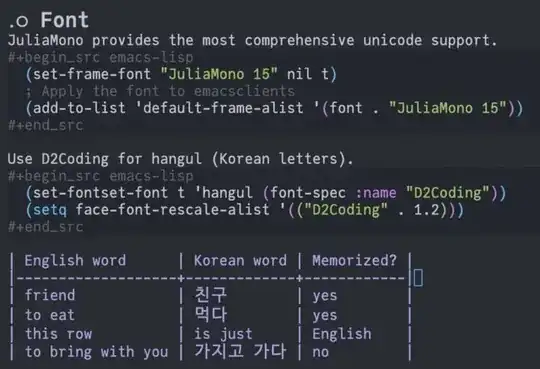When I try to make a table that has Korean character (한글) mixed with English words, the table becomes unaligned, and according to an answer about Japanese found here the the same problem with Japanese letters, it seems English letters, and Japanese letters have different base pixel sizes, and thus something needs to be changed at the operating system level.
Here it is in plain text:
| English word | Korean word | Memorized? |
|-------------------+-------------+------------|
| friend | 친구 | yes |
| to eat | 먹다 | yes |
| this row | is just | English |
| to bring with you | 가지고 가다 | no |
I'm using MacOs Mojave, and actually using spacemacs, any ideas what I can do? Thank you.

